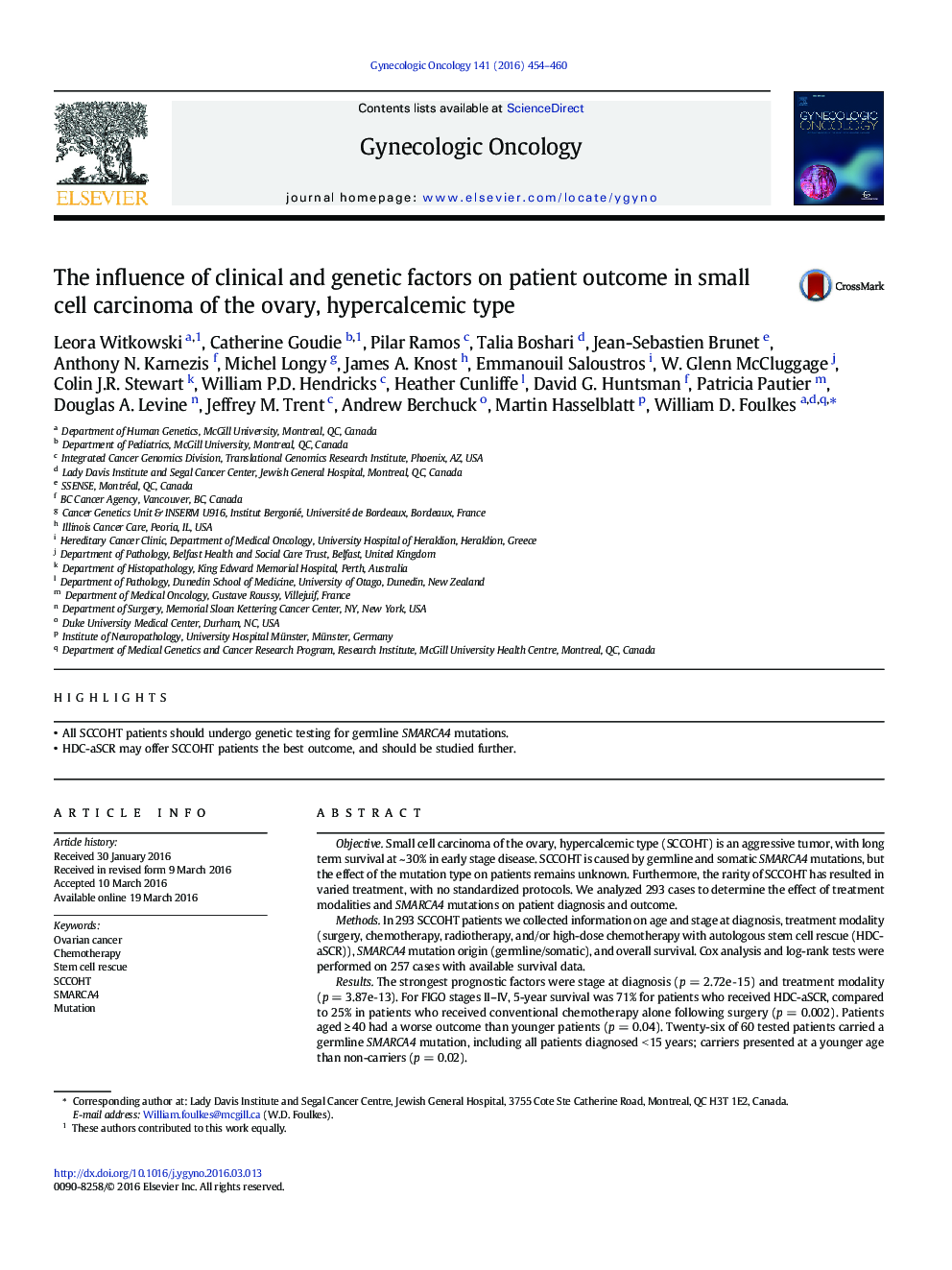| کد مقاله | کد نشریه | سال انتشار | مقاله انگلیسی | نسخه تمام متن |
|---|---|---|---|---|
| 3942931 | 1254060 | 2016 | 7 صفحه PDF | دانلود رایگان |
• All SCCOHT patients should undergo genetic testing for germline SMARCA4 mutations.
• HDC-aSCR may offer SCCOHT patients the best outcome, and should be studied further.
ObjectiveSmall cell carcinoma of the ovary, hypercalcemic type (SCCOHT) is an aggressive tumor, with long term survival at ~ 30% in early stage disease. SCCOHT is caused by germline and somatic SMARCA4 mutations, but the effect of the mutation type on patients remains unknown. Furthermore, the rarity of SCCOHT has resulted in varied treatment, with no standardized protocols. We analyzed 293 cases to determine the effect of treatment modalities and SMARCA4 mutations on patient diagnosis and outcome.MethodsIn 293 SCCOHT patients we collected information on age and stage at diagnosis, treatment modality (surgery, chemotherapy, radiotherapy, and/or high-dose chemotherapy with autologous stem cell rescue (HDC-aSCR)), SMARCA4 mutation origin (germline/somatic), and overall survival. Cox analysis and log-rank tests were performed on 257 cases with available survival data.ResultsThe strongest prognostic factors were stage at diagnosis (p = 2.72e‐ 15) and treatment modality (p = 3.87e‐13). For FIGO stages II–IV, 5-year survival was 71% for patients who received HDC-aSCR, compared to 25% in patients who received conventional chemotherapy alone following surgery (p = 0.002). Patients aged ≥ 40 had a worse outcome than younger patients (p = 0.04). Twenty-six of 60 tested patients carried a germline SMARCA4 mutation, including all patients diagnosed < 15 years; carriers presented at a younger age than non-carriers (p = 0.02).ConclusionsStage at diagnosis is the most significant prognostic factor in SCCOHT and consolidation with HDC-aSCR may provide the best opportunity for long-term survival. The large fraction of SMARCA4 germline mutations carriers warrants genetic counseling for all patients.
Journal: Gynecologic Oncology - Volume 141, Issue 3, June 2016, Pages 454–460
